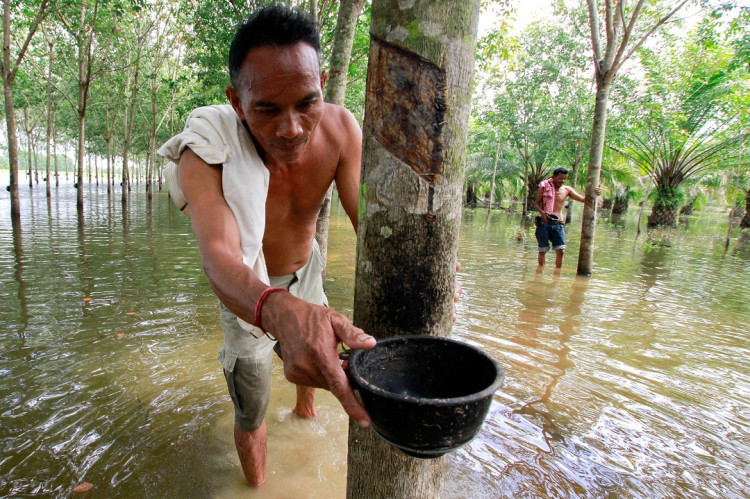The global car market and the demand for rubber tires have made Thailand one of the biggest players in the latex and rubber industry. However, the continuing slowdown in car sales in China and other parts of the world have placed added pressure on Thailand's rubber industry, forcing it to explore other uses such as face creams and coastal erosion systems to counteract the decreasing demand.
Thailand's rubber and latex industry are estimated to be worth more than $6 billion annually. The country is considered to be the world's largest rubber producer and exporter, with China being its top consumer. Thailand production accounts for roughly a third of the world's natural rubber supply.
The country's products are mostly used in automotive tires, gloves, and rubber components. With slowing car sales in China, Thailand has now been forced to consider other options and alternative uses.
The acting governor of the Rubber Authority of Thailand, Sunan Nuanphromsakul, mentioned in an interview in Bangkok that the country's rubber industry had to adapt to the changing times. He proposed that Thailand's producer stop the exportation of natural rubber. Instead, companies should process them locally to add more value to the products they export. Around 80 percent of the rubber coming out of Thailand is natural rubber, which is considered as a lower-value commodity.
As of the moment, some automotive companies have relocated their manufacturing facilities to Thailand. Some Chinese tire brands have already done so, benefitting both the companies and local producers. Home-grown companies have also started to spring up, creating alternative use of locally-sourced rubber for products such as cushioning bases for playgrounds and road surfaces.
Despite the increase in local processing plants, Thailand's rubber industry still has to find other alternative uses for its commodity to fully compensate for the declining global demand. According to industry experts, companies will have to find innovative and creative ways to use locally-sourced rubber to remain competitive on a global scale.
One company in Thailand has started to use rubber in its proprietary stand-line device that is able to catch marine sediment. The product can also be used to stabilize newly planted mangroves. A biochemistry professor at southern Thailand's Prince of Songkla University has also recently found out that local rubber plants do have antioxidant properties that can be used to fight the physical effects of aging.
The plant material that can be used for cosmetic and nutrition applications is typically thrown away, which means that the new discovery could add more value to the products themselves. The university is currently gathering rubber sap and materials from local growers, continually researching possible new applications.






